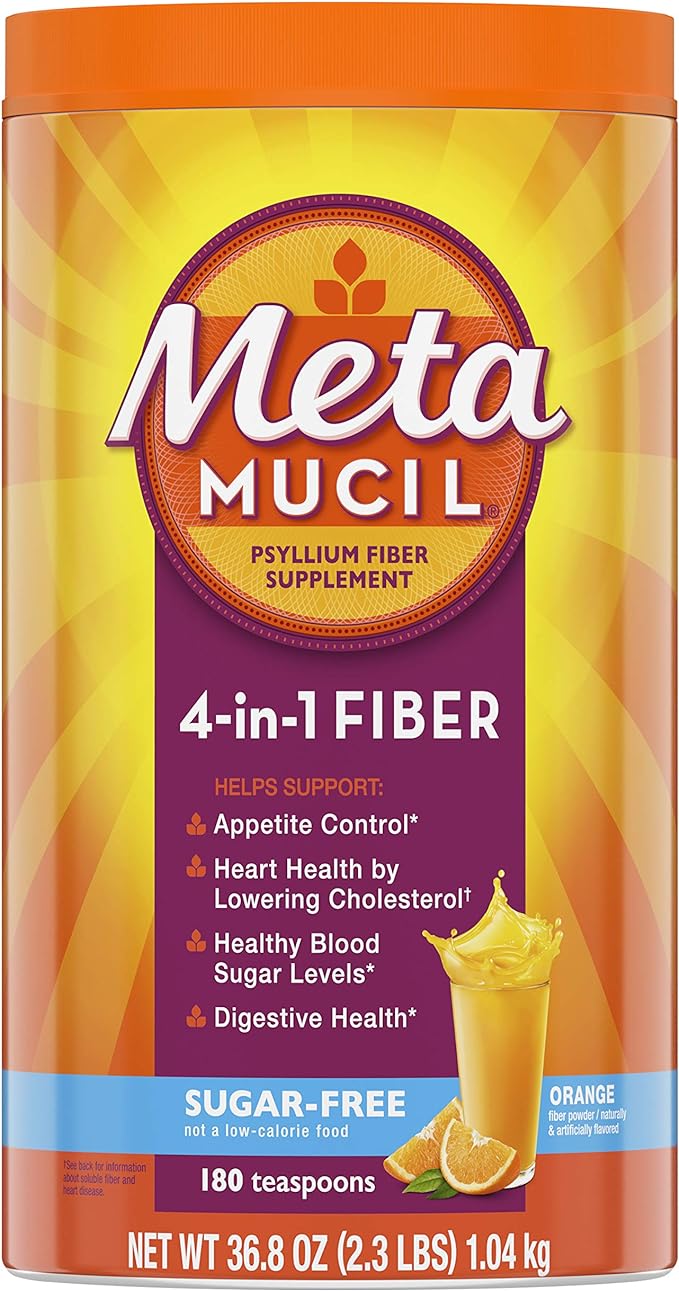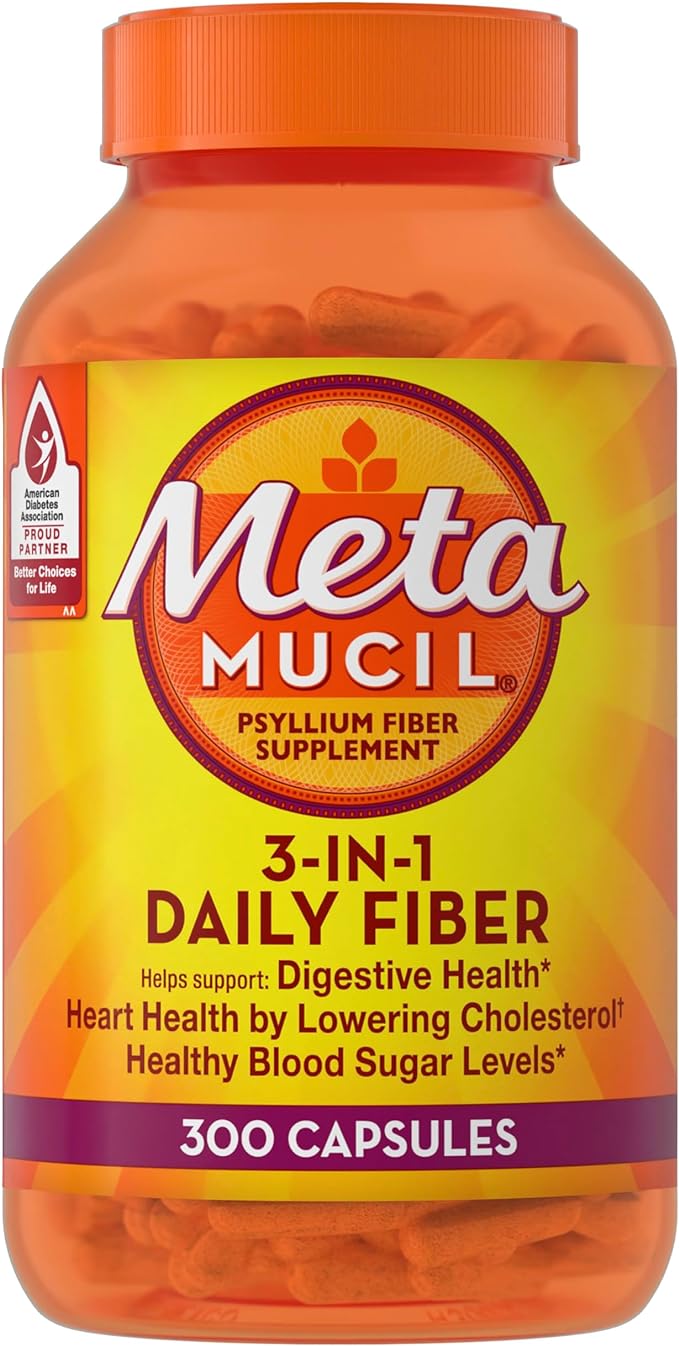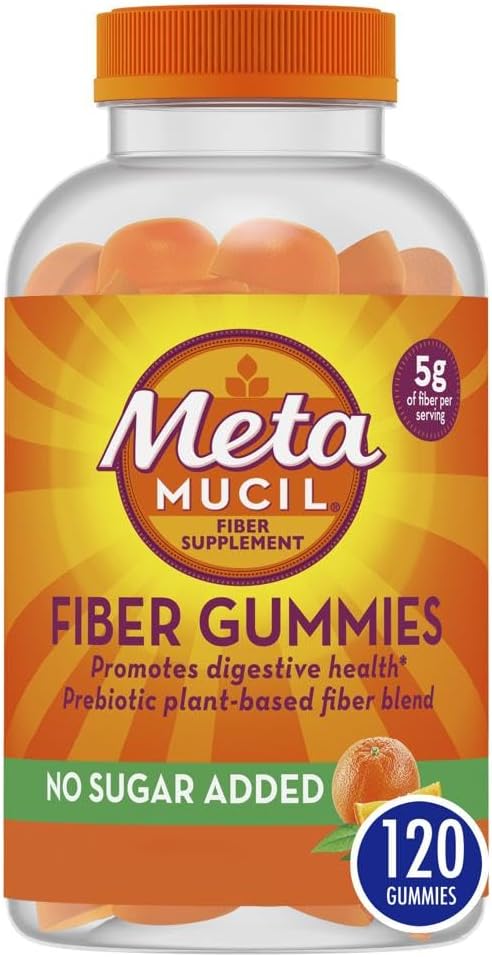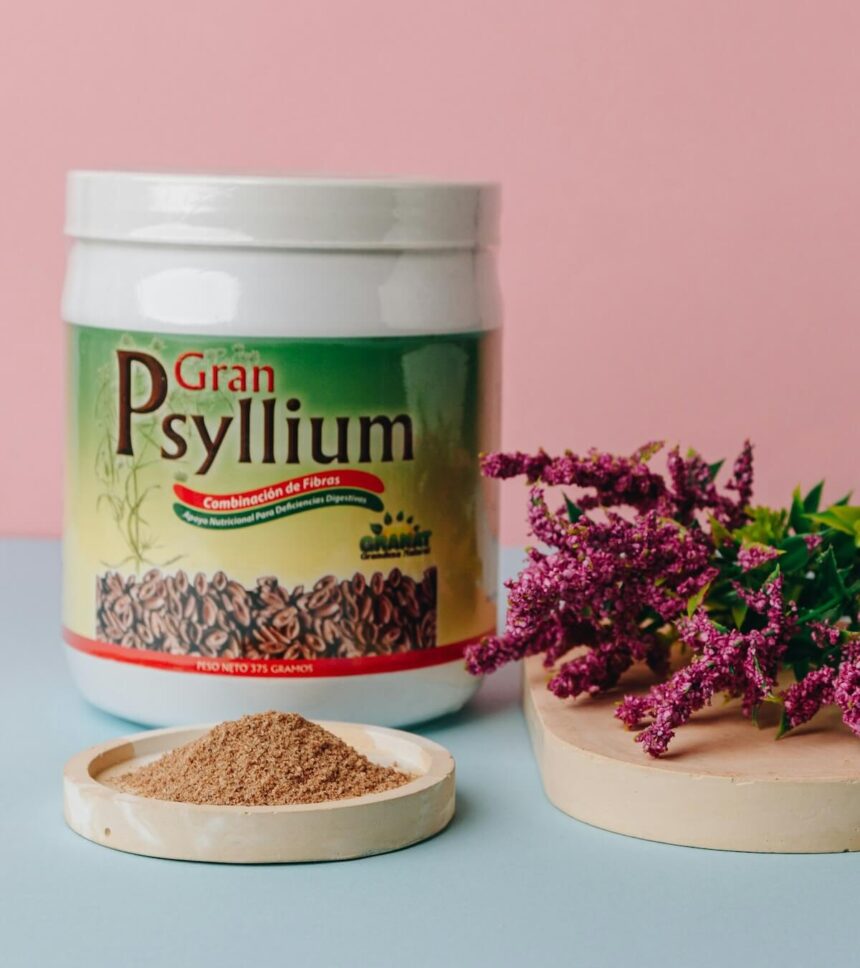Psyllium husk sounds like a relatively new trend, especially with more health and wellness influencers embracing the magic of fiber. Many Americans, however, have known about psyllium husk since the 1970s, when Procter & Gamble introduced Metamucil as a laxative. Today, Metamucil is still the leading psyllium husk supplement brand.
We’ve all heard how fiber is crucial for a healthy diet, but is psyllium husk the magical fiber that’s missing from your diet? We’ll dig deeper into the health benefits of psyllium husk.
What Is Psyllium Husk?
Psyllium comes from a plant called Plantago Ovata, and the tiny seeds are ground down to harvest the husk. The powder that is left is the dietary supplement, which is formed into capsules or dissolving powders to be ingested, such as Metamucil.
Like other forms of fiber, it is non-digestible and holds water, which helps move waste along the digestive tract. As it absorbs water, it forms a gel-like substance and adds bulk to the stool to make it easier to pass (thus, the laxative effect that Metamucil is known for).
Therefore, psyllium husk works similarly to chia seeds or flaxseeds—its volume also increases by around tenfold when absorbing water.
Psyllium Husk Benefits
Most psyllium husk benefits are related to digestion, which in itself is already a huge health perk. However, we’ll break down some of the most common benefits of psyllium husk, especially if consumed regularly.
Improved Digestion
The most prominent and utilized benefit of psyllium husk is to regulate digestion.
“By providing extra fibre to the intestine, the non-digestible bulk helps move stool along and prevent constipation,” describes Dan Jackowiak, Nutritional Consultant and Holistic Health Practitioner and the Founder of Yeast Infection Advisor.
The digestive benefits of psyllium husk have two opposite sides: it can be used to bring bowel movements back to the center, so it can help with both diarrhea and constipation. It helps make bowel movements more formed when they are too loose, and it can provide moisture and motility when constipation is present.
In the case of constipation, research has found that psyllium husk brings significant changes in the microbiota, supporting gut health and relieving constipation.
Reducing Appetite and Improving Weight Loss
The fiber content of psyllium husk also helps in weight management.
Fiber is known to promote the feeling of fullness, reducing appetite and overall calorie intake. Psyllium husk may be taken before meals to control appetite and lessen the chance of overeating. This helps in achieving substantial weight loss.
Interestingly, research has found that psyllium husk brings significant weight loss results – even greater results than a restrictive diet alone.
Since psyllium husk absorbs water and creates bulk in the stool, you’re likely to feel less hungry after your meals (combined with more stable blood sugar), which is largely behind these weight loss results, too.
Lowering Cholesterol Levels
“Psyllium can help lower cholesterol levels, as it can bind to bile acids and cholesterol in the digestive tract, helping to remove them from the body. Soluble fiber, such as in psyllium husk and oats, can help improve cholesterol levels by binding to cholesterol in the gut and excreting it through stool,” explains RD Avery Zenker from Everflex Fitness.
The FDA approved a specific health claim for food labels for dietary psyllium in 1998, as research showed that over 7 grams of fiber from psyllium seed husks can lower both total cholesterol and LDL cholesterol levels.
Blood Sugar Control
Similar to controlling cholesterol, one of the most remarkable psyllium husk benefits includes blood sugar control.
“The soluble fiber of psyllium husk can slow down the absorption of sugar and prevent blood sugar from a sudden spike,” says Catherine Gervacio, Registered Nutritionist-Dietitian and Certified Exercise Nutrition Coach.
Of course, psyllium husk alone won’t treat diabetes, but research has shown that consuming psyllium before meals improves the blood glucose level, especially in people who already have type 2 diabetes. Though this still needs more research, psyllium husk can definitely support your blood sugar and keep it more balanced throughout the day.
Is Psyllium Husk Safe?
Psyllium husk is generally safe for most people when consumed with adequate water. It actually has a long history in traditional herbal medicine. It is believed many would take it regularly as early as the 16th century to help maintain digestive health.
Like any other food, moderation is the key to ensuring the health benefits of psyllium husk. It’s also important to note that because psyllium can interfere with the absorption of certain medications, it should be taken at a different time of day than medication – usually, at least two hours before or after. If you’re taking some medications, please consult with your primary care physician before using any psyllium husk supplements.
Adequate water intake is especially crucial when taking psyllium husk. Without water, you risk developing bowel obstructions and making your digestive issues even worse.
Interestingly, excessive gas isn’t an issue with psyllium husk – since it doesn’t ferment in the intestinal tract, it won’t produce excess gas.
Some people may also develop an allergic reaction to psyllium, but generally speaking, psyllium husk has very little side effects and should be safe for most people.
How Much Psyllium Husk Can You Have Per Day?
How much psyllium husk you can have per day depends largely on your individual needs, tolerance, and digestive health.
In general, 1-2 tbsp of psyllium husk can be taken in a day and if tolerated, you can increase the consumption little by little. However, the more psyllium husk you consume, the more water you also need to consume.
If you’re new to psyllium, you may want to start with a small amount, like 1/2 teaspoon in an 8-ounce glass of water, once daily, and then slowly increase the dosage based on your needs.
The recommended maximum psyllium husk you can have per day stays around 15 to 30 grams per day, but these amounts shouldn’t be experimented with without having consulted a doctor first. If you opt for commercial brands like Metamucil, you should follow the dosage mentioned on the label.
Depending on the specific health conditions, your healthcare provider might suggest higher psyllium doses. Psyllium can be used either in the morning or before going to bed, and its helpful to take it at the same time every day.
Which Psyllium Fiber Supplement Is the Best?
When it comes to choosing the best psyllium fiber supplement, it depends on individual preferences and needs. Psyllium husk comes in powder, capsules, and tablets. The whole version is a coarser ground psyllium, and has similar benefits as the powder.
One of the most popular psyllium fiber supplement brands is Metamucil, which is available as a powder, capsule, or even gummies:

Metamucil, Daily Psyllium Husk Powder Supplement Powder
This powder is used by mixing in a glass of water. To make the drink more palatable, it contains orange flavor, but also aspartame and Yellow 6, which should be consumed cautiously. For a safer route, opt for the Metamucil powder that doesn’t contain any added flavorings.

Metamucil, Daily Psyllium Husk Powder Capsules
These capsules contain pure psyllium husk and gelatin, nothing else, making it a good alternative to any flavored powders. You can take up to 5 capsules per day, one Metamucil bottle contains 300 capsules.

Metamucil Fiber Supplement Gummies
By consuming just three of these Metamucil fiber gummies, you’ll get 5 grams of fiber. Metamucil gummies contain soluble corn fiber and chicory root fiber but keep in mind that similar to flavored powders, Metamucil gummies also contain some additives, including citric acid.
Though Metamucil psyllium husk powder is extremely popular, it’s definitely not the only choice. You’re always better off using supplements that come without any additives, flavorings or other such ingredients.
Therefore, if you’re looking for the best possible psyllium husk supplements, opt for pure psyllium husk that you can mix into other foods, such as oatmeal or smoothies.
The only key is to drink enough liquids, but you can easily find a good balance, especially if you add psyllium husk to your daily smoothies. To take things a notch further, try organic, finely ground psyllium husk like the Viva Naturals Organic Psyllium Husk Powder, which is literally 100% pure psyllium husk.
Metamucil may be a household name, but don’t be afraid to try pure unflavored psyllium husk and experiment by adding just a little bit to your daily meals – that’s an ingenious way to increase your fiber intake.








